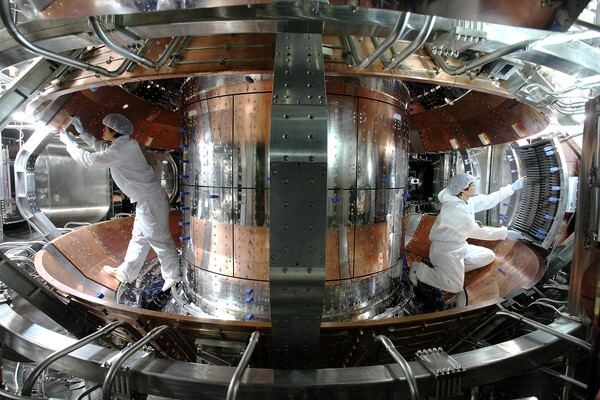
The French Alternative Energies and Atomic Energy Commission (CEA) announced on Tuesday that its WEST (钨-Enhanced Steady-State Tokamak) nuclear fusion experimental device, located in Cadarache, southern France, has successfully maintained plasma at over 100 million degrees Celsius for 1337 seconds. This achievement surpasses the previous world record set by Chinese researchers and is considered a significant step forward in the development of fusion energy.
WEST, a tokamak-type experimental reactor known as an "artificial sun," is designed to stably confine and control plasma at extremely high temperatures, a crucial technology for harnessing fusion energy. Plasma, often referred to as the fourth state of matter, is a superheated ionized gas.
The CEA's breakthrough surpasses the record set by Chinese researchers last month, who sustained plasma at over 100 million degrees Celsius for 1066 seconds. The French team's achievement demonstrates a 25% increase in the duration of stable plasma confinement.
"With this experiment, we have injected 2 MW of power into the tokamak and maintained the superheated plasma for more than 20 minutes," the CEA stated in a press release. "This proves that plasma can be maintained more stably in the International Thermonuclear Experimental Reactor (ITER)."
The ITER, an international collaboration involving 35 nations, aims to demonstrate the scientific and technological feasibility of fusion energy. The success of WEST provides valuable insights for the operation of ITER and paves the way for the realization of fusion as a clean and sustainable energy source.
[Copyright (c) Global Economic Times. All Rights Reserved.]



























